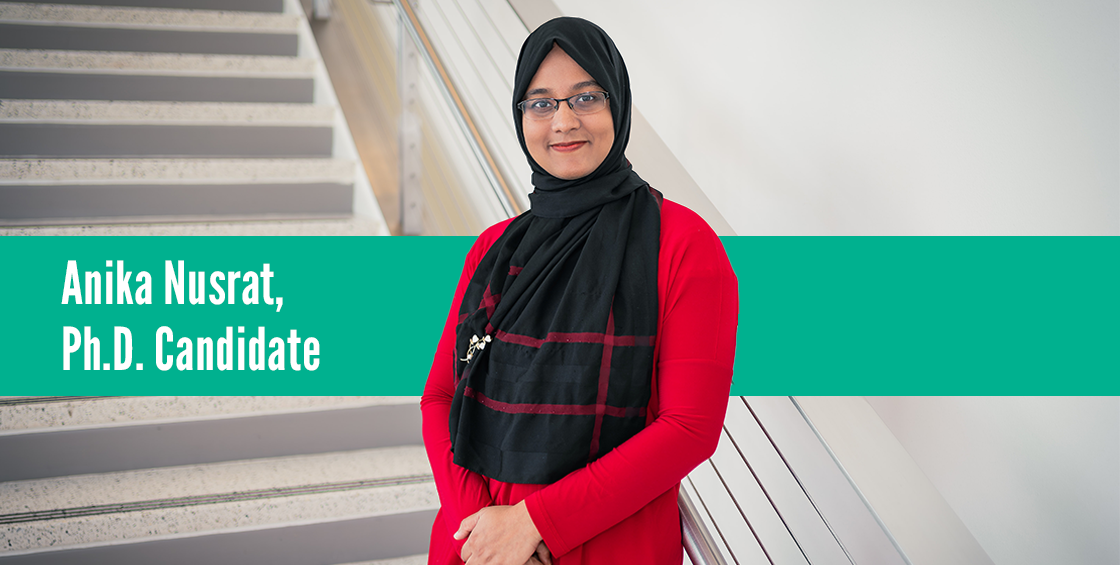With over five years of doctoral research, numerous national presentations, and a résumé filled with accolades and publications, Anika Nusrat isn’t just dissecting the heart's mechanisms — she’s redefining how we study it. Currently completing her Ph.D. in Pharmacological and Pharmaceutical Sciences (PPS) at the University of Houston College of Pharmacy, Nusrat's work bridges developmental biology and adult cardiac disease. Her research sheds new light on congenital conditions such as Left Ventricular Noncompaction Cardiomyopathy (LVNC), a devastating pediatric heart disease with few effective treatments.
"I found a disease model in my research," Nusrat said, referring to her gene deletion study that revealed the pathological mechanisms behind LVNC. "This disease affects newborns, and some don’t survive. We still don’t have proper treatment. But by identifying the mechanism, maybe now we can develop something that helps."
Scientific Roots, Global Perspective
Nusrat’s path to cardiac research began far from Houston in Rajshahi, Bangladesh, where she earned top honors in both her undergraduate and master’s studies in pharmacy. Her academic excellence was recognized nationally, garnering her the Prime Minister’s Gold Medal, Education Minister’s Award, and multiple university distinctions. But what truly propelled her forward wasn’t just talent; it was curiosity. Her master’s thesis focused on isolating antibiotic-producing bacteria from soil.
"If I could find any good source for antibiotics, it could help the entire field of medicine," Nusrat said.
That sense of purpose carried into her transition to cardiac biology.
"I wanted to be a physician first, but I also wanted autonomy in my schedule and deeper involvement in science," Nusrat said. "Pharmacy gave me both."
Mapping the Heart’s Hidden Conversations
Working in the lab of Mingfu Wu, Ph.D., Nusrat is investigating how epicardial-derived cells interact with other cardiac tissues during heart development. Her most recent experimental results demonstrate how the Numb family of proteins — along with Fgf signaling — regulates ventricular compaction, a crucial process in forming a healthy heart.
"The moment I see something new under the microscope, something no one else in the world has seen yet — that’s what drives me," Nusrat said. "Even my PI doesn’t know it until I call him over and say, ‘Look!’ That’s the best part of research."
Tools, Training, Tenacity
At UH, Nusrat leveraged the college’s advanced imaging and gene therapy resources to their fullest. She trained extensively in confocal microscopy, echocardiography, and transcriptomic techniques. As an international student navigating scientific rigor and cultural adaptation, Nusrat chose Houston for more than academic opportunity.
"I wanted to be somewhere multicultural — where I could find my groceries, yes — but also where I could build a life," Nusrat said.
Beyond the Bench: Weighing Truth and Industry
Despite her passion for academic research, Nusrat is candid about the complexities of today’s scientific landscape.
"These days, it feels like science has become a bit of a business," Nusrat said. "Sometimes, you have to pick projects you’re not interested in just because they’re more likely to get funded."
This realism hasn’t dulled her commitment to "true science." Instead, it has expanded her perspective, motivating her to explore career paths beyond academia, including roles in regulatory affairs and grant review. Nusrat is the first author of a manuscript currently under revision and a co-author of a recent Science publication that reveals a conserved mechanism of cell communication across species.
In 2020, Nusrat received a University of Houston Presidential Fellowship. In 2023, she was recognized with a competitive predoctoral fellowship from the American Heart Association (AHA), honoring the depth and impact of her research. Nusrat was a top winner for her poster presentation at the AHA Basic Cardiovascular Sciences Scientific Sessions (BCVS) conference and a winner for her oral presentation at the PPS Research Symposium in 2024.
"I want to experience how things work across the board in academia, industry and regulatory so that when I return to research, I do it with fuller understanding," Nusrat said. "I want to give something new to science every time — something true. That’s how I know I’m doing the right thing."
